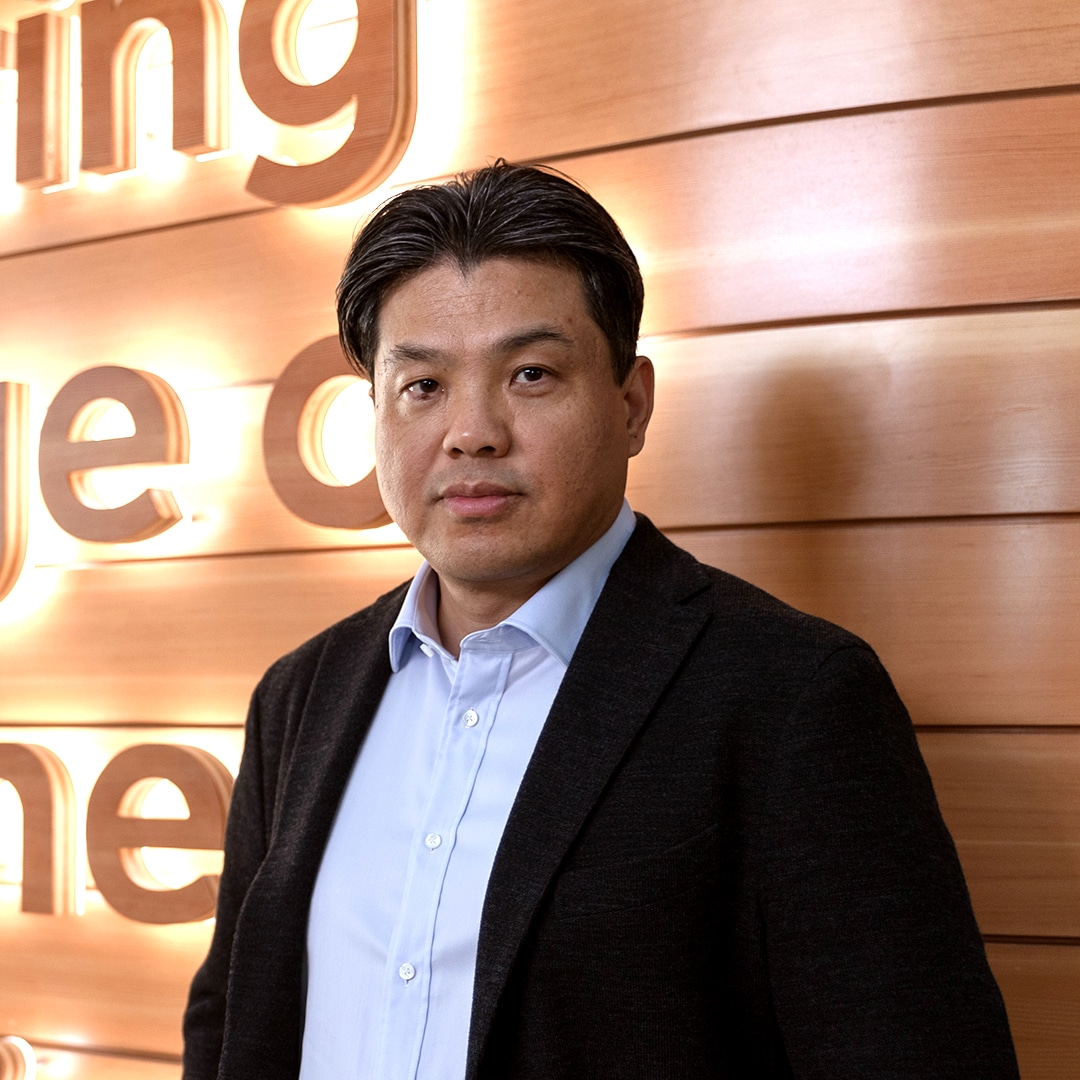After more than twenty years working on medical diagnostics and technology (most recently at GE and Quest Diagnostics), Yi Zhou became highly selective about his work opportunities. “I define my success in life according to how well I live my purpose, passion, core values, and competencies,” he says.
With advanced degrees in computer science and microbiology, he needed a role that could both challenge him and empower him to make an impact on people living today. He found it in 2021 at Adaptive Biotechnologies, where he was hired as senior vice president, head of engineering and IT; in August 2022, he was promoted to chief technology officer (CTO).
Adaptive integrates biotechnology with innovations in big data analytics and cloud computing. Focusing on the adaptive immune system, their main product analyzes immune responses against disease using advanced technologies like immunosequencing, proprietary chemistry, computational biology, artificial intelligence (AI), and machine learning; their mission is to transform the ways that we diagnose and treat diseases.
“I define my success in life according to how well I live my purpose, passion, core values, and competencies.”
Yi Zhou
“The human adaptive immune system has evolved into a nearly perfect natural diagnostic and therapeutic tool, and it can detect and treat almost any disease in the exact same way. Adaptive has developed an immune medicine platform integrating cutting-edge technologies, thereby translating the genetic language of the human adaptive immune system into clinical products and solutions to detect, monitor, and treat diseases such as cancer, autoimmune conditions, and infectious diseases,” Zhou explains.
Yi Zhou grew up in Wuxi, China, about eighty miles from Shanghai. His father was the CEO of a department store; his mother was an accountant. They instilled in him an early, persistent love for reading and learning. His early interests were broad—astronomy, world history, board games—and eventually his educational journey brought him to the United States. “It’s been an adventure,” he says. “I’ve learned quite a lot being in the USA; I’ve built a family here, so it’s been an exciting journey for me.”
Due to his interest in the life sciences, he spent first stage of his career in research and teaching at a genetics lab. While the discoveries were thrilling, he began to realize that he could have a transformative impact on other stages of the process: the engineering and implementation that takes place between laboratory research and finalizing a marketable product.

“Like most people, I’ve personally experienced how medical technology can change people’s lives,” he says. “I saw my grandfather going through cancer treatments, and that’s why I felt very interested in how medicine works from an early age.” That mission has come to define his career goals and well-being; after working in the laboratory, he began pursuing work in the engineering and technology fields where he could apply his knowledge. “I needed to push toward these fields in order to make a real impact on our lives and solve society’s needs and wants,” he explains.
That framework led Zhou to roles in the health technology industry, where he had opportunities to integrate his interests in computer science, technology, and healthcare. At GE he worked on cloud-based healthcare data and analytics platforms; at Quest Diagnostics he led their agile transformation. At both, he earned company-wide recognition for his efforts.
In 2021, Yi Zhou was recruited to Adaptive Biotechnologies with a mandate to develop new technology practices across the company. The technological transformation has three key components: agile, platform transformation, and IT. Taken together, these constitute a comprehensive overhaul of the company’s technology workflow and a turn toward systems-oriented thinking. Each piece integrates technology into all areas of the business, so Zhou and his team are advancing them all together.
“Leadership success starts with authenticity. Authenticity means reflecting my own ethics, values, and personality when I lead and make decisions—and people trust us when we are true to ourselves.”
Yi Zhou
The first—agile—introduces the eponymous development framework into Adaptive’s product workflow, shifting away from the traditional waterfall model. “This is a journey to transform the company to a nimble, responsive, iterative product development mode with continuous delivery,” explains Zhou. “Based on regular customer feedback, this enables the company to adapt to constant changes.” Already, the impact is apparent: team productivity is up 52 percent, product release cycles are 61 percent faster, and quality issues are down 72 percent.
Zhou’s second component, which he calls platform transformation, is an effort to move the organization from project-based thinking to platform-based thinking. This translates into strategic flexibility: instead of relying on delivering products for short-term success, the company can advance and commercialize entire platforms with differentiated product lines.
One example would be in diagnostic testing. “We developed a digital platform to support panel tests for detecting a variety of diseases—COVID-19, Lyme, Crohn’s, and others—from a single blood test,” he says. “A robust platform puts us in a unique position to evaluate the best path to commercialize.”
The final component is IT services. While businesses tend to treat this as a cost center, Zhou is working to treat it as a customer experience.
“We see a very positive change,” he says. “Now we can spend more time on cross-functional collaborations to support business initiatives; we’re becoming a main driver to accelerate revenue growth.”
Zhou’s colleagues outside the company have taken note of his work. “Yi is a forward-looking leader who is transforming Adaptive Biotechnologies by repositioning IT services from a cost of doing business to a strategic driver for growth and innovation,” says Joe Paxton, senior vice president of healthcare and life sciences at Persistent Systems.
As a leader spearheading major organizational change, Yi Zhou points to a key lesson from evolutionary biology: it’s not the strongest who survive, nor the most intelligent, but the ones most adaptive to change. Transformational leadership has formed the foundation of his approach here; while he can list a number of leadership styles that have informed his work, he names authenticity as the crucial value.
“Leadership success starts with authenticity,” he says. “Authenticity means reflecting my own ethics, values, and personality when I lead and make decisions. People trust us when we are true to ourselves, and that trust makes it possible to create followers and get things done.”


